What Happens to Your Nails If You Never Take a Break Between Gel Manicures
This is why experts recommend spacing out your salon appointments.
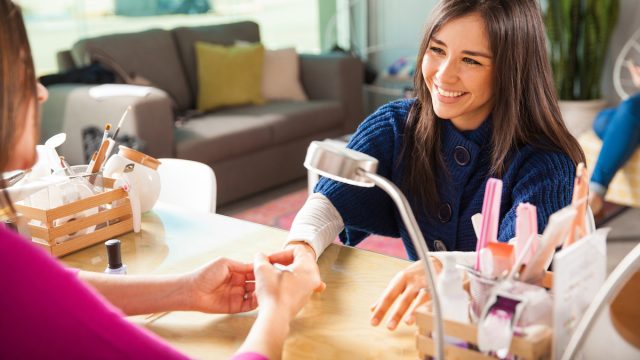
If getting regular gel manicures is part of your self-care routine, then you're likely used to your hands looking their best. But experts say that under the surface, getting back-to-back manicures could actually be harming your nails. In fact, experts from the American Academy of Dermatology Association (AADA) recommend taking extended breaks between salon appointments. "Try not to wear nail polish for one to two weeks or longer. This will allow your nails time to repair," their experts write. They add that between polishes, you should frequently apply a moisturizing product to the nails and cuticles to help them recover before your next manicure.
Wondering exactly what happens to your hands if you get a gel manicure every week without taking a break? Read on for some of the most common problems you might experience—including one that could pose a major threat to your health.
READ THIS NEXT: If You Notice This With Your Fingernails, Get Your Thyroid Checked.
Your nails may become discolored.
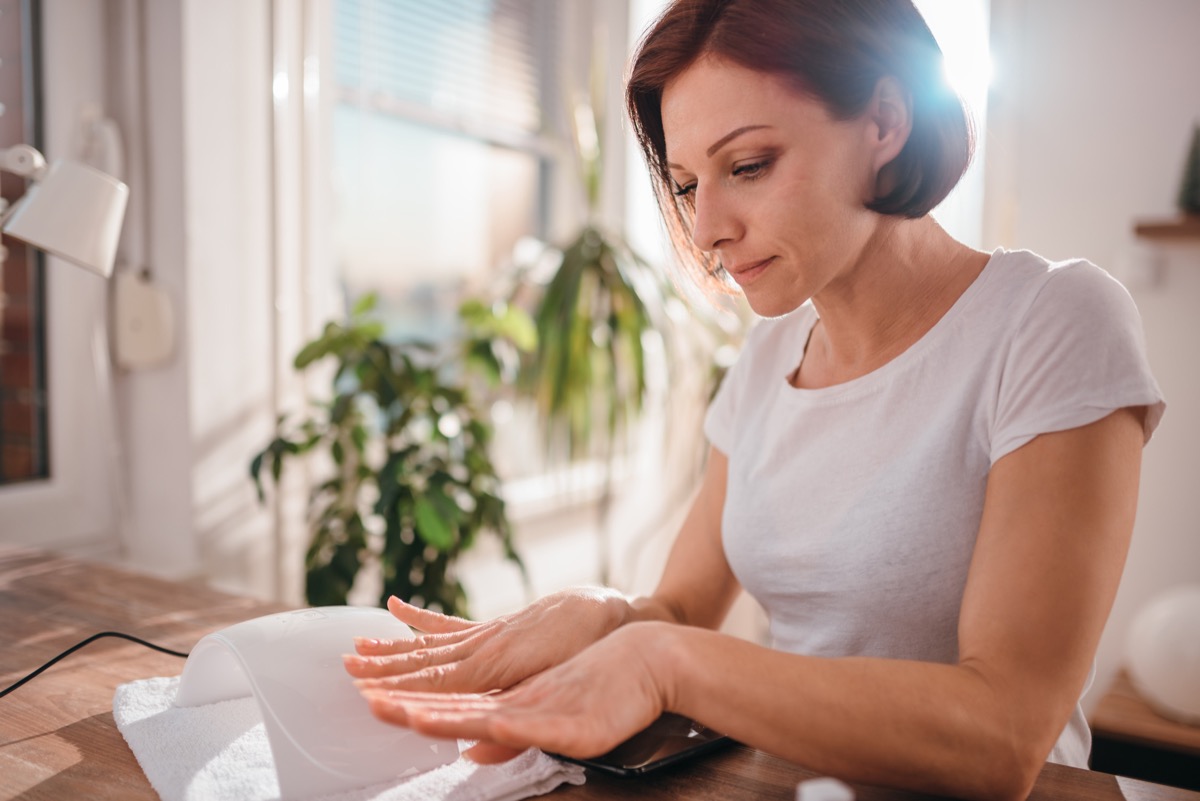
When you get consecutive manicures without taking a break in between, you may notice some discoloration in your nails. Sometimes this is caused by the chemicals in the nail polish, which can include formaldehyde, triphenyl phosphate, and more. Other times, "the discoloration can actually be the beginnings of a fungal infection," writes John D. Hollander, DPM, a now-retired podiatrist who practiced in Santa Rosa, CA.
"Studies have shown that fungus can be caused from wearing dark nail polish for too long without removing it," he explains. "The polish does not allow the nail to breathe and it could trap any moisture that was on the nail prior to painting them. This is the perfect environment for fungus to grow."
Hollander says there are several nail polishes on the market which have anti-fungal properties. However, he says that even these polishes "should be removed weekly to give your nails a break."
READ THIS NEXT: Love Walking Around Barefoot Indoors? This Podiatrist Says You Should Stop Now.
Your nails may become brittle.
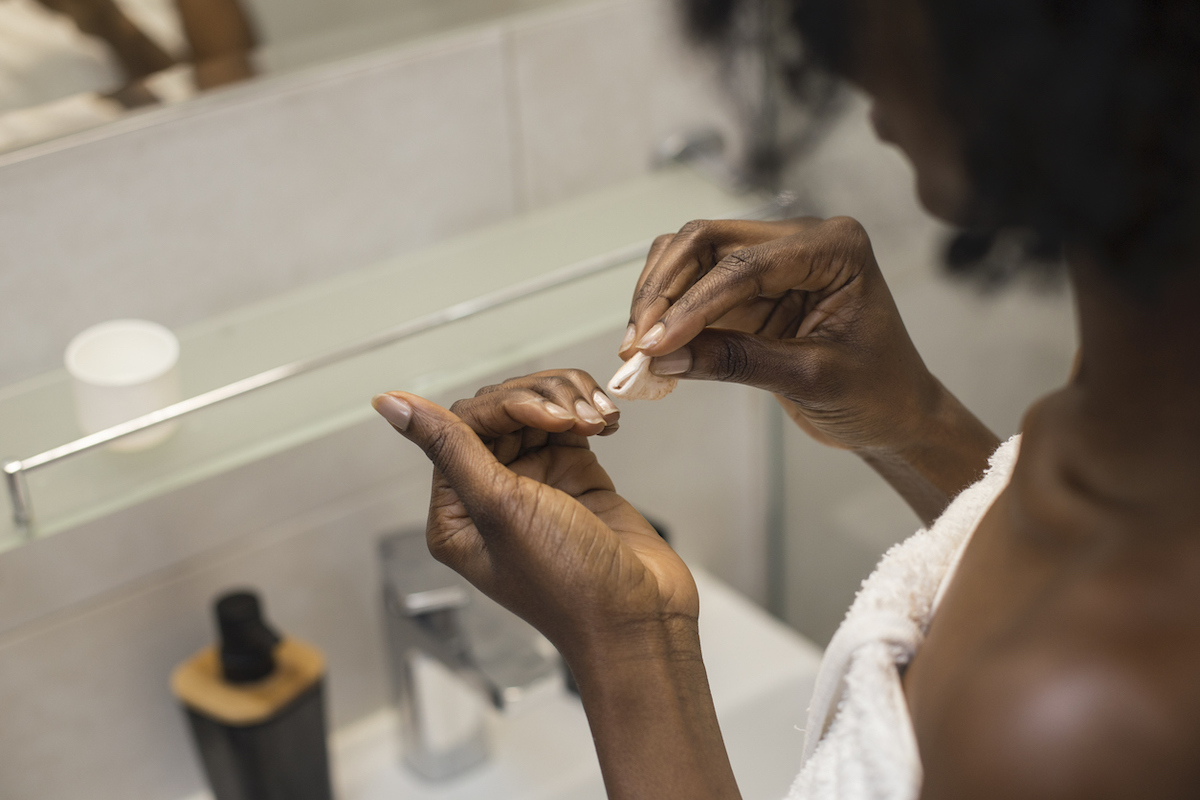
Brittle, damaged nails are also common among people who get weekly manicures. "Back-to-back manicures for weeks to months at a time can definitely result in nail damage," says Dana Stern, MD, a board-certified dermatologist, nail specialist, and the founder of Dr. Dana.
"Damage can be due to frequent polish remover exposure and especially acetone, which dries and dehydrates the nail, cuticle and surrounding skin," she explains.
For more health news sent directly to your inbox, sign up for our daily newsletter.
Your cuticles could be damaged.
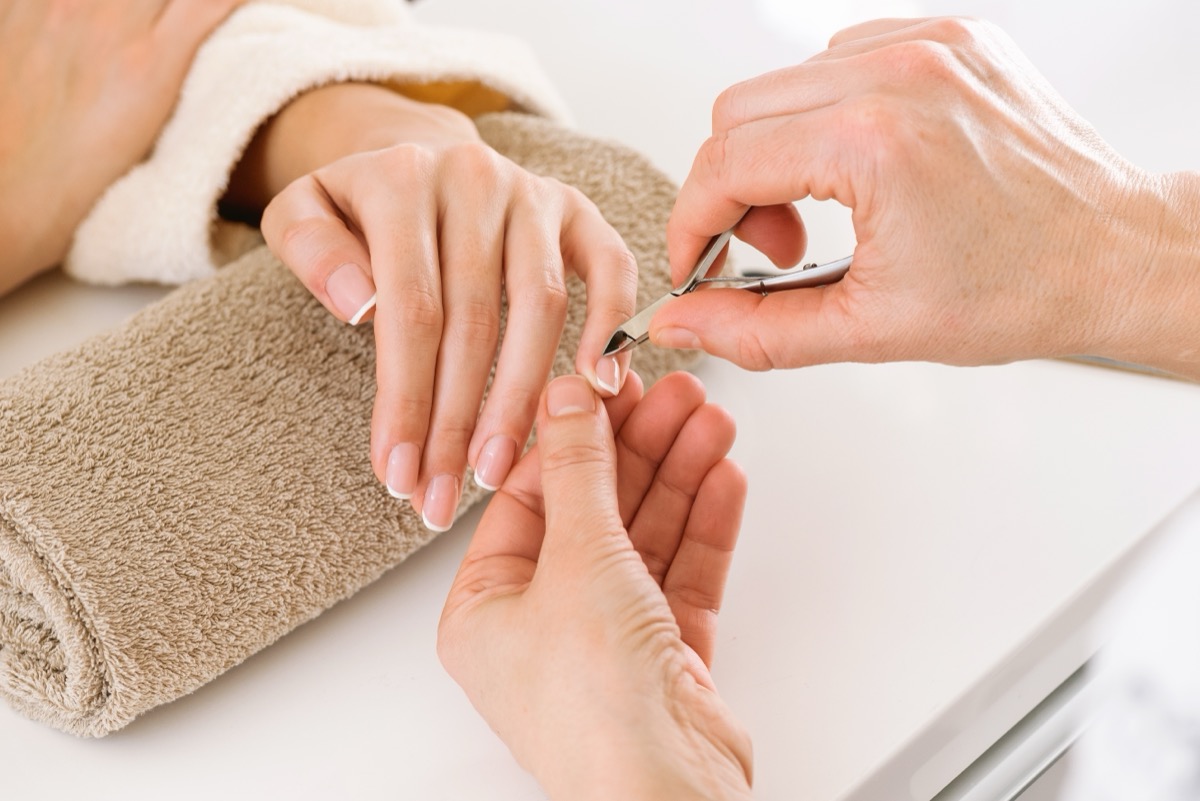
Stern says that caring for the cuticle is one of the most important aspects of a manicure, and that frequent cuticle removal will "inevitably" lead to nail damage. "Often in the salon the cuticle is aggressively removed with either a cuticle nipper or a liquid cuticle remover. Both are potentially damaging," she says.
Stern explains that the cuticle functions as your nails' natural protective seal, which she describes as being like the grout between your shower tiles in that it keeps water, moisture, and organisms out of the nail unit. "When that seal is removed or becomes dry, and dehydrated, it becomes compromised (picture old, dry grout) and then water and moisture is able to enter the nail unit causing all sorts of problems," she says.
You may notice irregular nail growth.
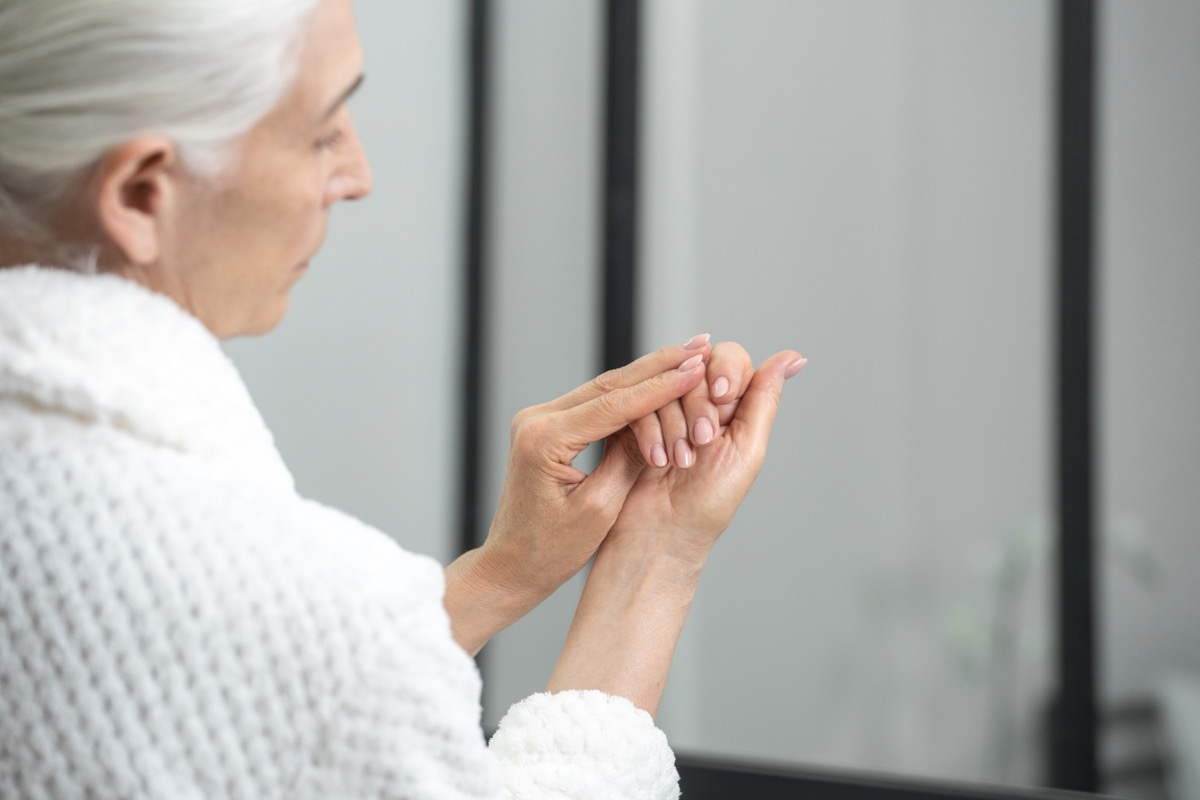
Poor cuticle care can affect more than just the cuticles themselves, warns Stern. "If the cuticle compromise persists chronically, the nail will eventually grow irregularly with white patches, bumps, thickening or discoloration," she explains.
Instead of having your cuticles cut regularly, "gently push them back in the shower with a washcloth and apply cuticle oil after your shower and throughout the day," she suggests.
Your nails may get weak.
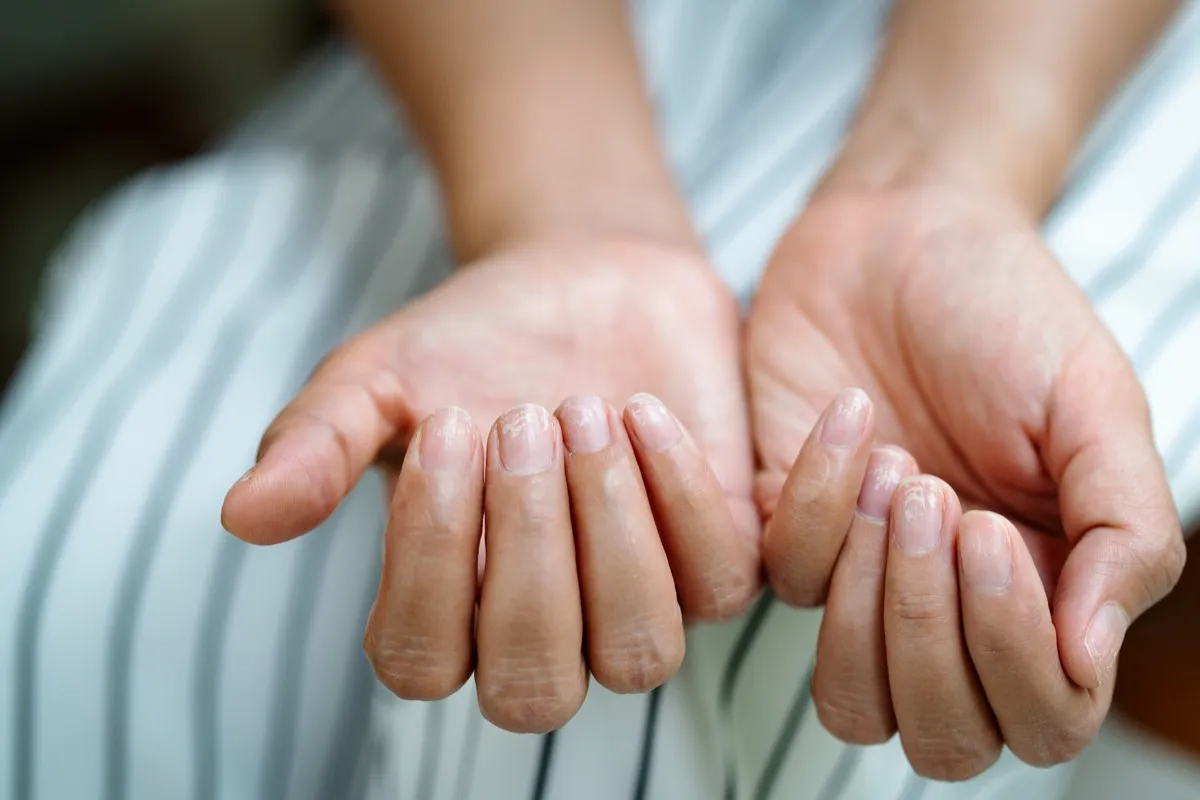
Your nails may also become weakened if you regularly get manicures without breaks. Maria J. Morrison, a beauty and personal care expert at the skincare and makeup site Beauty Store For You, explains that this is often caused by "exposure to harsh chemicals, excessive moisture, or frequent use of nail polish remover."
Stern adds that it may not take long to notice this effect. "If the nails are weak, thin, and brittle to begin with, manicures might compromise the health of the nail after just one manicure," she tells Best Life.
You could be at greater risk of skin cancer.
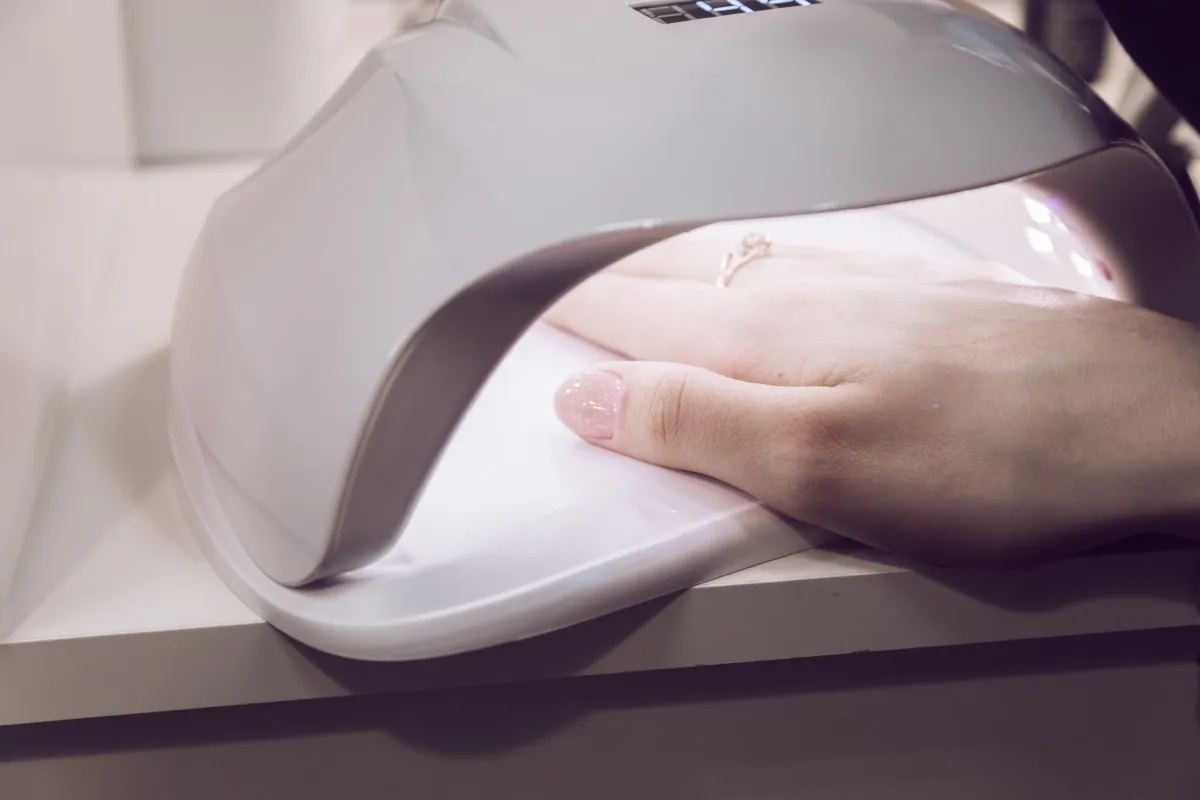
According to a Jan. 2023 study published in the journal Nature Communications, getting frequent gel manicures can also lead to a heightened risk of skin cancer. The study authors wrote that their findings "strongly suggest that radiation emitted by UV-nail polish dryers may cause cancers of the hand and that UV-nail polish dryers, similar to tanning beds, may increase the risk of early-onset skin cancer."
Stern notes that in particular, excessive exposure to UV radiation can cause basal cell carcinoma, which is the most common form of skin cancer, as well as squamous cell carcinoma.
"At this point in time, it is difficult to quantify the risks of UV-A exposure during repeated gel manicure sessions," she admits, explaining that it can be a challenging question to study "because there is so much variability with respect to the types of lamps, bulb life, exposure times, positioning of the skin relative to the light, skin types being exposed and manicure frequency."
Until more research reveals the true risk of getting gel manicures, Stern says it's best to take precautions by applying sunscreen to your hands 30 minutes prior to getting your appointment, or wearing sun-protective gloves with fingertips cut off.





















